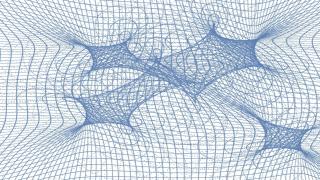Bibcode
Farina, E. P.; Falomo, R.; Scarpa, R.; Decarli, R.; Treves, A.; Kotilainen, J. K.
Bibliographical reference
Monthly Notices of the Royal Astronomical Society, Volume 441, Issue 1, p.886-899
Advertised on:
6
2014
Citations
39
Refereed citations
37
Description
We investigate the extent and the properties of the Mg II cool,
low-density absorbing gas located in the halo and in the circumgalactic
environment of quasars, using a sample of 31 projected quasar pairs with
impact parameter pd < 200 kpc in the redshift range 0.5 ≲ z
≲ 1.6. In the transverse direction, we detect 18 Mg II absorbers
associated with the foreground quasars, while no absorption system
originated by the gas surrounding the quasar itself is found along the
line of sight. This suggests that the quasar emission induces an
anisotropy in the absorbing gas distribution. Our observations indicate
that the covering fraction (fC) of Mg II absorption systems
with rest-frame equivalent width Wr(λ2796) > 0.3
Å ranges from fC ˜ 1.0 at pd ≲ 65 kpc to
fC ˜ 0.2 at pd ≳ 150 kpc, and appears to be higher
than that for galaxies. Our findings support a scenario where the
luminosity/mass of the host galaxies affect the extent and the richness
of the absorbing Mg II circumgalactic medium.
Related projects

Relativistic and Theoretical Astrophysics
Introduction Gravitational lenses are a powerful tool for Astrophysics and Cosmology. The goals of this project are: i) to obtain a robust determination of the Hubble constant from the time delay measured between the images of a lensed quasar; ii) to study the individual and statistical properties of dark matter condensations in lens galaxies from
Evencio
Mediavilla Gradolph